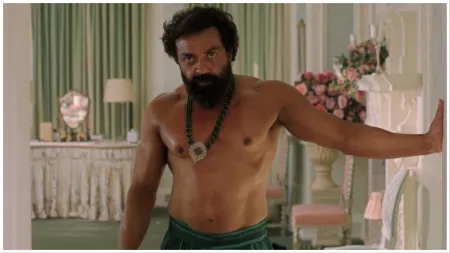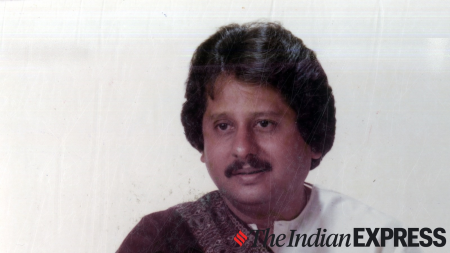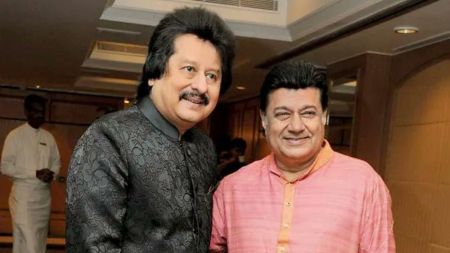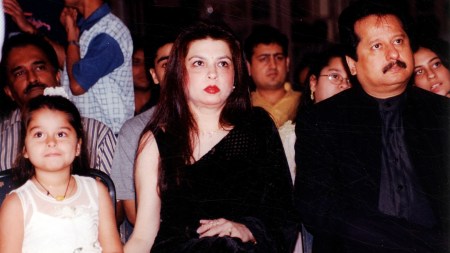“His singing conveyed a range of emotions and his ghazals spoke directly to the soul,” expressed Prime Minister Narendra Modi on X (formerly Twitter) while mourning the loss of the legendary singer Pankaj Udhas. The PM couldn’t be more right. Pankaj’s ghazals undeniably struck a chord with the soul of every listener and his melodious voice had the remarkable ability to evoke profound emotions from his songs.
An admirer of legends Begum Akhtar and Mehdi Hasan, Pankaj too ascended to fame through his ghazals. His debut ghazal album Aahat, released in 1980, garnered significant attention, paving the way for numerous successful albums in the years to come.

In fact, his first song to achieve widespread acclaim, “Chithi Aayi Hai” from Mahesh Bhatt’s Naam (1986), was a ghazal that remains a favourite among fans even today. Here are five ghazals of Pankaj Udhas that continue to be cherished by Indian music enthusiasts.
Chithi Aayi Hai
“I had the feeling that I was going to be part of something special,” Pankaj shared during an earlier interview, recalling the first time he encountered the lyrics of “Chithi Aayi Hai”. His intuition was indeed accurate, as the song remains one of the singer’s most beloved pieces. Composed by Laxmikant-Pyarelal, the song also features Pankaj in the song scene. Its lyrics depict the joy of a migrant upon receiving a letter from home, which feels like the soil of the motherland, evoking a deep longing to return.
Kisi Ne Bhi To Na Dekha
Composed by Anand–Milind for the movie Dil Aashna Hai, directed by Hema Malini, Pankaj made an appearance as himself in the scenes of this song as well. The song narrates the thoughts of a person who desires unconditional love but never receives it from anyone. It also features Amrita Singh and Divya Bharti and remains a beloved track among Pankaj’s admirers. Apart from Amrita and Divya, the film’s cast also included Jeetendra, Mithun Chakraborty, Dimple Kapadia, Sonu Walia, Kabir Bedi and Shah Rukh Khan.
Ae Gham e Zindagi Kuch Toh De Mashwara
Yet another mesmerising ghazal by Pankaj, he crafted the track for his 1985 album Nayaab. Written by Zafar Gorakhpuri, the lyrics depict the dilemma of a drunkard torn between choosing to go to his beloved’s house or to the bar. Pankaj’s captivating voice in this piece undoubtedly transports every listener to a profound realm of transcendence.
Chandi Jaisa Rang
Portraying the splendour of a dearly beloved, this ghazal by Pankaj Udhas consistently evokes feelings of love in listeners. When he recites the line “Dhanak ghata kaliyan aur taare sab hai tera roop,” it inevitably brings to mind that one person whom one loved unconditionally and instantly transports us back to those moments through the song.
Thodi Thodi Piya Karo
Similar to love, Pankaj was well acquainted with the emotion of melancholy, and “Thodi Thodi Piya Karo” exemplifies this sentiment perfectly. This timeless ghazal by Pankaj has left a lasting impact on both his contemporaries and listeners. Despite some interpreting his use of the word “sharaab” literally as alcohol, Pankaj clarified during an interview with The Hindu in 2017, stating, “I have been telling people that intoxication is not sharaab in its literal sense. Classical poets like Mir Taqi Mir, Mirza Ghalib and Omar Khayyam wrote about it as a metaphor for the world at large, as a Khasiat, a state of mind. It is all about how one perceives intoxication. It is about being intoxicated by love, money, beauty and so on. Getting hooked on to such intoxicants restricts one from reaching the Supreme. In all these poems on sharaab, one should look for a deeper meaning.”
Disclaimer: The copyright of this article belongs to the original author. Reposting this article is solely for the purpose of information dissemination and does not constitute any investment advice. If there is any infringement, please contact us immediately. We will make corrections or deletions as necessary. Thank you.







